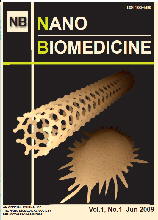Synopsis
This study examined whether Portland cement powder in acrylic resin could form crystals on specimen surfaces in long-term water storage, as determined using scanning electron microscopy (SEM), X-ray diffractometry (XRD), and X-ray photoelectron spectrometry (XPS). Portland ce-ment/resin composites were prepared with 50 mass% Portland cement and 50 mass% acrylic resin. The Portland cement/resin composites were stored in water for 0 (control), 50 and 100 days. After each period, the disk surfaces were examined by SEM, XRD and XPS. The SEM analysis showed mineralization products on the composite disk surfaces after 50 and 100 days of storage. By XPS analysis, calcium- and silicon-rich layers were found on the composite surfaces. XRD analysis of mineralized deposits on resin disks identified calcium carbonate. The results of these wa-ter-soaking experiments demonstrate that surface precipitation of mineralization deposits is a common behavior of the experimental Portland cement/resin composite over 50 days in water.
Key words: Portland cement, resin, mineralization, long-term testing
